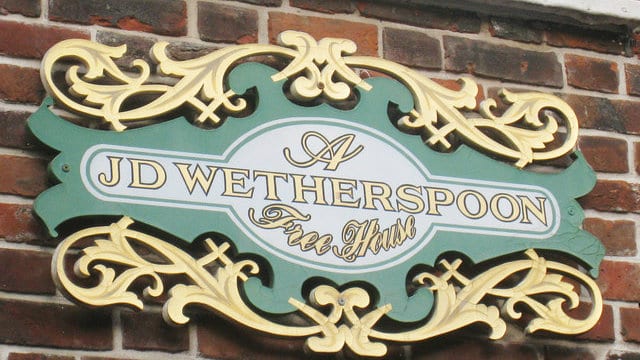Mitchells & Butlers (LSE: MAB) is one of the UK’s largest pub and managed restaurant companies but the company is struggling to grow and I would ditch this floundering firm as soon as possible.
According to a trading update issued today, after a strong summer, Mitchells is now facing more challenging trading “particularly given poor weather this year up against a sunny period last year which has specifically impacted drink sales.” Even though the company reports that sales on a like-for-like basis are up 2.9% year-to-date, ahead of the wider market, “margins for the full year will be below last year due to inflationary cost pressures.”
According to City analysts, the pub operator’s earnings per share are expected to decline by 1% for the financial year ending 30 September 2017, followed by a similar contraction for the following year. With headwinds building, it’s no surprise that shares in the business currently trade at a forward P/E of only 7, a valuation that reflects the company’s cloudy outlook.
A poor investment
Mitchells has been struggling to create value for investors for the past five years. Excluding dividends, the shares have returned -13% since September 2013. By comparison, the company’s larger peer, JD Wetherspoon (LSE: JDW) has seen the value of its shares rise by 160% over the past five years as the company has gone from strength to strength.
Spoons is one of the London market’s greatest success stories. Since floating in 1992, the shares have produced a total return of 4,690%, outperforming its peer group, the FTSE 100, FTSE 250 and FTSE All-Share.
And as it continues to dominate the UK high street, I believe that the firm will continue to serve up attractive returns for investors.
Still growing
As other pubcos such as Mitchells have floundered in recent years, Spoons has continued to expand. Pre-tax profit has increased by 80% over the past six years and the company’s results for the 53 weeks ended 30 July, smashed expectations with the group reporting an adjusted pre-tax profit for the period of £102m, compared to City expectations of £98m. For the full-year, pre-tax profit rose by 25%.
The fact that it can continue to chalk up double-digit earnings growth, while the rest of the pub industry is struggling, is a testament to the company’s offering and skill of management. Further expansion is planned with 10 to 15 new pubs expected by the year ending July 2018. For fiscal 2017, the company opened 10 pubs but also closed 41 underperforming pubs, which had little impact on revenue.
Unlike other pubcos, it really is a cash cow. For the year to 30 July, the company generated free cash flow per share of 97p, giving a free cash flow yield of 7.8%. I believe free cash flow yield offers investors a better measure of a company’s fundamental performance than the widely used P/E ratio because cash generation is a more reliable indicator of value creation than earnings, which can be manipulated by management to present the best possible view of the company to investors. This free cash flow yield is highly impressive and significantly above that of even the market’s most defensive operators such as Unilever (3.9%) and Reckitt Benckiser (4.9%).








